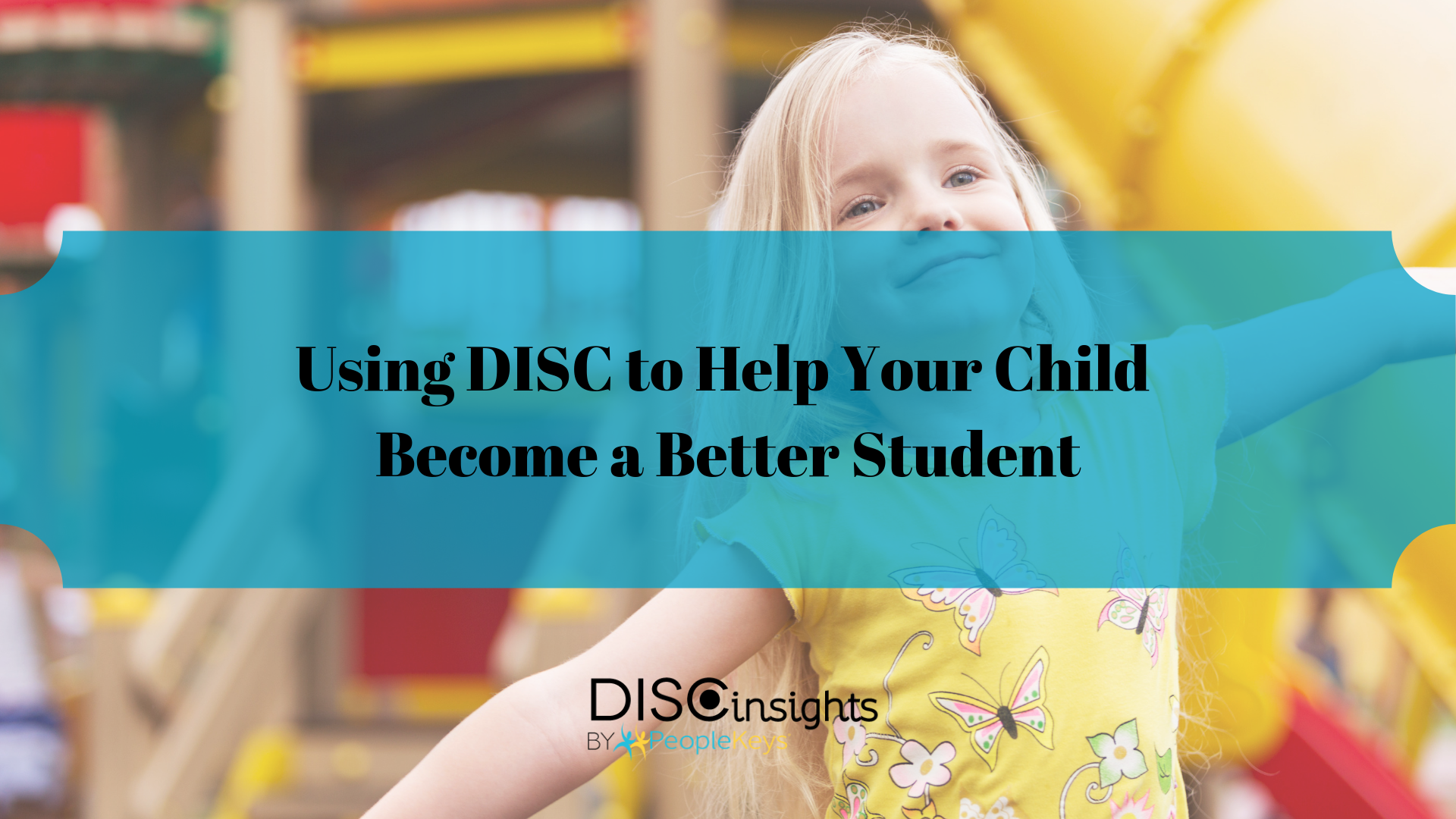- SHOP BY PRODUCT
- DISC TRAINING & CERTIFICATION TOOLS
- DISC RESOURCES
- BLOG
- SHOP BY PRODUCT
- DISC TRAINING & CERTIFICATION TOOLS
- DISC RESOURCES
- BLOG
- ALL ITEMS



DISC reveals universal truths benefiting your child in school and beyond.
DISC is an increasingly popular tool in the workplace. Many organizations use it for team building, leadership development, and to assess hiring fit. But please don’t file your DISC profile away or leave it in your desk drawer! Take it home with you because it’s actually a very practical tool for helping your kids become better students.
Since many professionals use DISC at work, it’s natural to imagine DISC as a useful tool in the classroom. DISC is a tool to unlock human potential, and what better way to introduce DISC than at the time when young people are just forming, understanding, and maximizing their unique and natural potential.
Introducing a personality profiling framework to students in middle school is the perfect time for kids to realize how different, (yet predictably different) personality and natural behavior are from one person to another. Since there are many personality frameworks in existence today from Myers-Briggs to Enneagram, it’s important to select the best one for young people. There is much evidence to support the fact that DISC is your best bet for young folks not only because the DISC personality style model has been around for centuries beginning with Hippocrates, but it is also highly validated and an expressively simple, strait forward, and practical tool that is easily remembered and applied -- even by young people with short attention spans.
What’s more, DISC can reveal certain universal truths that will benefit your student all of their life in school and beyond:
In an age when soft skills and emotional intelligence are taking center-stage in the workplace, it’s essential to assess and educate students early by teaching a framework for personality types so that your child can learn the universal DISC language to appreciate diversity, individual differences, and differentiated approaches to learning and communication.
Help your children become a better student with the Scholastic Success Report. The insights you (as a parent) and they (as a student) gain about their own personality style will help you create the most optimal communication and learning environment for them at home. In addition, they will learn valuable universal truths about personality styles, personality frameworks, and appreciating diversity that will be valuable not only though their education, but can give them an advantage when entering the workforce.

© PeopleKeys. All Rights Reserved
WORKING DAYS/HOURS
Mon - Fri / 8:30AM - 5:00PM EST
